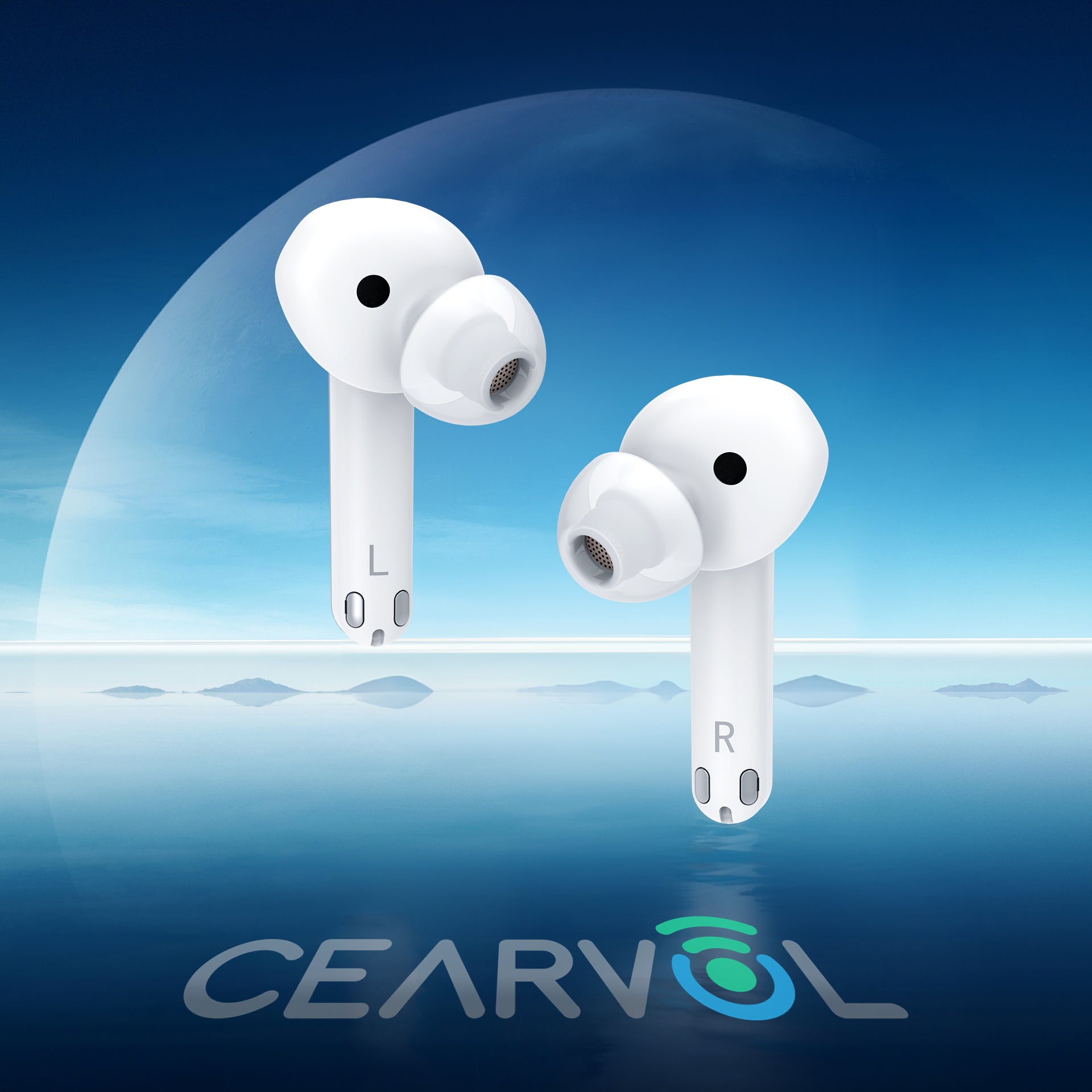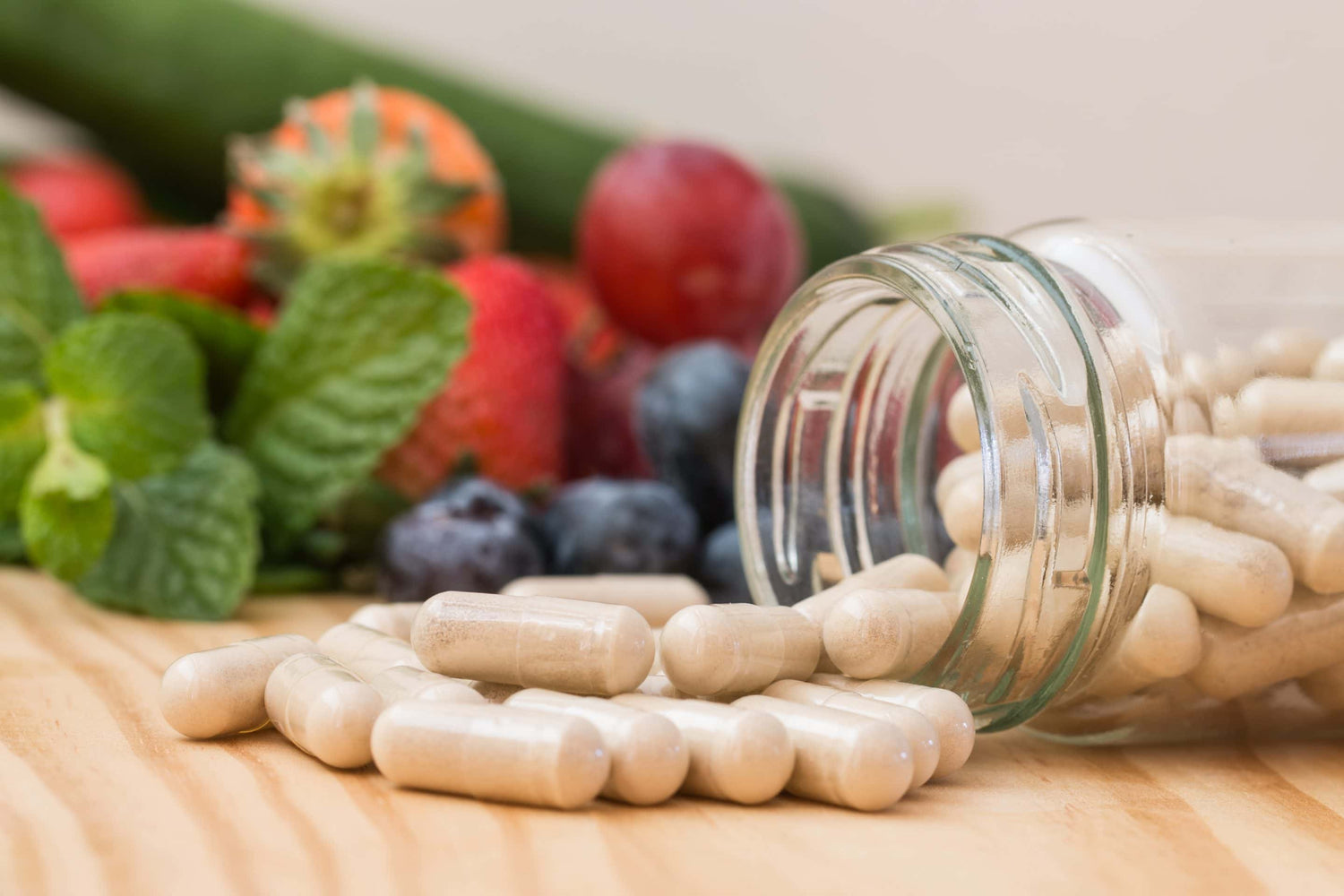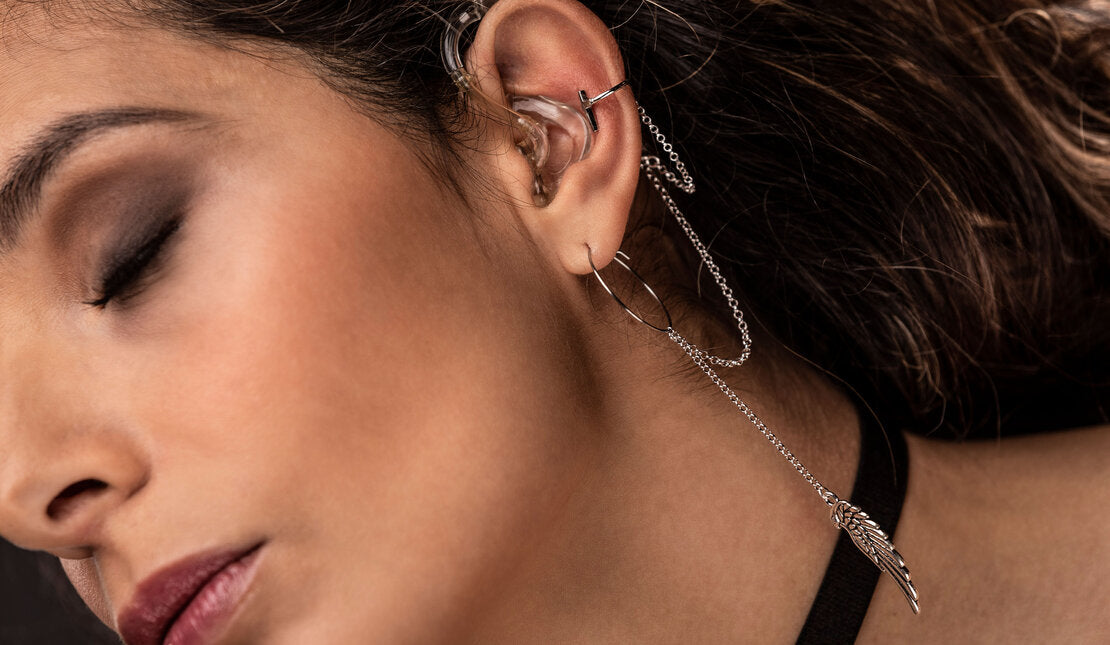As someone who's worked in the field of hearing health for over 20 years, I've heard this question more times than I can count:
“Are there vitamins for hearing loss that actually work?”
The short answer? Yes—but let's manage our expectations. Vitamins aren't miracle cures, but they can support ear health, especially when it comes to sensorineural hearing loss, the type most commonly associated with aging and inner ear damage.
So in this article, I want to talk to you—one-on-one—about how specific vitamins can play a role in hearing care. We'll touch on what the science says about vitamins for hearing loss, which ones support your inner ear, and whether they can help with things like eustachian tube dysfunction.
🚀 Navigate This Post
- ➤ Part 1: Vitamins for Hearing Loss — What Science Really Says
- ➤ Part 2: Best Vitamins for Hearing Loss—What the Research Tells Us
- ➤ Part 3: Targeted Vitamins for Sensorineural Hearing Loss and Inner Ear Protection
- ➤ Part 4: Everyday Vitamins That Help Your Ears
- ➤ Part 5: Vitamins for Eustachian Tube Problems
- ➤ Part 6: Practical Steps You Can Take Today
You may also be interested in:
- Should I Wear My Hearing Aids All the Time? An Expert's Honest Answer
- Best Alarm Clock for the Hearing Impaired & More Safety Alerts
- Cool, Practically Invisible and Stylish Hearing Aids: Meet the New Era of Hearing Aids
Part 1: Vitamins for Hearing Loss — What Science Really Says
Let's start with something simple but profound: once inner ear hair cells are damaged, they don't regenerate. That's why preventing hearing loss—especially sensorineural hearing loss—is so critical.
One of my patients, Marion, in her early 70s, came to me after noticing she struggled to follow conversations in busy places. She assumed it was background noise. But tests showed she was entering early-stage sensorineural hearing loss.
Her first question: “Is there anything I can take to slow this down?”
Yes—there is.
1. Why Vitamins Matter for Hearing Loss
There's growing evidence that certain vitamins for hearing loss can help protect your auditory system before things get worse.
Here's what they can do:
- Antioxidants like vitamins C and E help combat oxidative stress, which damages inner ear cells.
- Vitamin B12 and folate support nerve health and reduce the risk of tinnitus.
- Magnesium helps protect against noise-induced hearing damage.
- Zinc supports immunity and can reduce inflammation in the ear.
These nutrients are often referred to as the best vitamins for hearing loss, not just for their direct impact, but because they support the entire hearing pathway—from blood flow to nerve function.
Want to learn more about the causes and types of hearing loss? I break that down in this article.

2. The Best Vitamins for Sensorineural Hearing Loss
Now let's get practical. Below are some of the best vitamins for sensorineural hearing loss and what they do:
- Vitamin A – supports the health of the ear's mucous membranes
- Vitamin B12 – strengthens auditory nerves and may reduce tinnitus
- Vitamin C & E – act as antioxidants, reducing inner ear cell damage
- Vitamin D – improves bone and cochlear health
- Magnesium – protects against sound-induced stress
- Zinc – boosts immune response and healing
If you're wondering how nutrition affects hearing, check out this evidence-based read on how diet affects hearing health. It's a great primer on the role of food and supplements in long-term auditory care.
Part 2: Best Vitamins for Hearing Loss—What the Research Tells Us
Now, let's talk specifics. You're probably wondering: Which vitamins are best for hearing loss? Over the years, I've found that the most helpful approach is focusing on nutrients that support nerve health, reduce inflammation, and protect against oxidative stress, which is one of the sneakiest culprits in age-related hearing decline.
Take Vitamin B12 and Folate, for instance. These two are crucial for the function of your auditory nerve. I once had a patient—let's call her Mary—who struggled with mild sensorineural hearing loss. Her B12 levels were severely low, and after a few months of guided supplementation and dietary changes, she didn't just feel better overall—her audiogram showed a measurable improvement. No, it wasn't a miracle cure. But combined with other good hearing practices, it made a meaningful difference.

Another vitamin you should pay attention to is Vitamin A, especially when it comes to inner ear health. Some studies suggest that it helps maintain the health of cochlear structures. Then there's Vitamin D, which doesn't get enough credit. Not only does it support bone density (and remember, the ossicles in your ears are the smallest bones in your body), but it also plays a role in regulating inner ear fluid levels.
It's important to point out that hearing loss is rarely about just one factor. Diet, environment, and genetics all play a role. If you want to explore more about this, I highly recommend this article on how diet affects hearing health. You'd be surprised how something as simple as leafy greens and nuts can support long-term hearing function.
Part 3: Targeted Vitamins for Sensorineural Hearing Loss and Inner Ear Protection
Sensorineural hearing loss is the most common type I encounter, especially among folks over 50. It's often caused by aging or repeated exposure to loud sounds—sometimes both. And here's where vitamins for sensorineural hearing loss come into play.
One standout here is Magnesium. Surprised? Most people are. Magnesium helps shield the delicate hair cells in your cochlea from the effects of loud noise. I always recommend it to folks who work in noisy environments or attend concerts often. Pair that with Zinc, which plays a key role in immune function, and you've got a duo that may help reduce the risk of progressive hearing loss—particularly in its early stages.
Another important compound is CoQ10—not technically a vitamin, but worth mentioning. It's an antioxidant that supports mitochondrial function, which is essential for energy production in your inner ear cells. In my experience, patients who take CoQ10 along with vitamins for inner ear health report less tinnitus and better clarity in conversations.
Now, while we're talking about inner support, don't forget your outer tools. Vitamins help from the inside, but for those already experiencing moderate hearing difficulty, tools like OTC hearing aids can bridge the gap. I often recommend looking into options like the best OTC hearing aids available today—they're easier to access, affordable, and can work beautifully alongside a healthy nutritional routine.
By the way, if you're serious about protecting your hearing long term, take some time to read this comprehensive association of nutritional factors with hearing loss study. It's dense, but it explains the science behind everything we're talking about.
Part 4: Everyday Vitamins That Help Your Ears
Did you know that what you eat can impact how well you hear? Certain vitamins for ear health support the delicate parts of the ear, especially the inner ear hair cells that help you pick up sound.
- Vitamin C helps reduce inflammation, which is great for preventing ear infections.
- Vitamin E fights oxidative stress that can damage hearing cells over time.
- Magnesium and potassium support blood flow and fluid balance in the inner ear.
Many of my patients who improved their vitamin intake noticed fewer hearing issues—especially when paired with better hydration and sleep. It's a small change with long-term benefits. If you're looking to go further, here's how you can improve hearing naturally with more lifestyle tips.

Part 5: Vitamins for Eustachian Tube Problems
If your ears feel “clogged” often—especially after flights or during allergy season—you might have eustachian tube dysfunction. This happens when the tube between your middle ear and throat gets blocked.
Certain vitamins may help here, too:
- Vitamin D supports the immune system and may reduce fluid buildup.
- Vitamin A and C help keep your mucous membranes healthy.
Many people find relief from mild dysfunction by combining hydration, reduced allergens, and the right vitamins for eustachian tube dysfunction. It's not a cure-all, but it can make a noticeable difference.

Diamond X1 - Best Hearing Aids with Bluetooth
Newcomer Price
$249.99 $309.99
- ✔ Adaptive sound modes for clear hearing.
- ✔ Bluetooth for calls & streaming.
- ✔ App-controlled, customizable adjustments.
- ✔ Rechargeable & fast charging.
- ✔ Ideal for mild to moderate hearing loss.
Part 6: Practical Steps You Can Take Today
Ready to protect your hearing health? Here's where to start:
- Check your vitamin levels with your doctor—especially D, B12, and magnesium.
- Add more whole foods to your diet—think fruits, leafy greens, and nuts.
- Use a hearing aid if needed. Vitamins support your ears, but they don't restore lost hearing.
And finally, if you already struggle with moderate hearing loss, don't rely on vitamins alone. One of the most impactful things you can do is to use the right hearing device early.
One excellent option is Cearvol's Diamond X1 rechargeable hearing aids. It's sleek, easy to use, and backed by thousands of users who've found more confidence and connection in their daily lives. Whether you're just starting to notice symptoms, or already dealing with daily communication challenges, the right hearing aid can work beautifully alongside your wellness efforts.
Final Thoughts
Vitamins can't reverse hearing loss—but they can support your overall ear health and prevent things from getting worse. From daily nutrients to the right assistive devices, staying proactive helps you hear better and live better.





Leave a comment
All comments are moderated before being published.
This site is protected by hCaptcha and the hCaptcha Privacy Policy and Terms of Service apply.